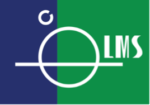All vessels under Vanuatu flag have to comply with Vanuatu legislation Vanuatu Maritime Services Limited Law Documents (vanuatumaritimeships.com.
This legislation is based on SOLAS and for vessels under 500 GT on IACS rec’99. LMS also has its own class rules; the white rules. These have been developed for traditional sailing vessels. They are suitable for sailing passenger vessels but also for sailing cargo vessels. With desired or necessary modifications to a ship these rules help us monitor the modification and ensure that ships are safe when they are ready to sail. A copy of the white rules can be found here
Inspections and certificates
LMS is authorized to conduct inspections on behalf of Vanuatu flag
If a vessel is introduced to LMS there are some inspections that needs to be done.
The vessel is new to LMS and Vanuatu, so there will be done an General Condition Survey onboard to asses if the vessel is good enough to be accepted by LMS and the flag state.
With the survey report of this inspection LMS will go to VMSL. They will then decide if they accept the vessel. In the same report LMS will state if they think if it is possible to comply with the rules. In the report will be added some recommendations about alterations and equipment.
During the General Condition Survey the complete vessel will be looked at. Also the underwater ship. It is practicable to have the vessel in drydock during the inspection.
When the vessel is accepted by the flag the next phase of the process will start.
The vessel probably needs some adjustments to comply with Vanuatu rules. When these have been done a new inspection is necessary. LMS will need to inspect the safety equipment on board. Also a Hull thickness measurement needs to be done, if this was not done during the General Inspection Survey. LMS works with a system that checks special items on the ship more extensively each 5 year. Some of those items are: Anchors, pumps, tanks, engines, lensing bilge system, etc. In the first year these items will be inspected. By the annual inspections most of these items will also be looked at, but not so detailed.
After all inspections have been satisfactory done the certificates will be made by the administration.
LMS will, after it has been demonstrated that the ship meets the requirements, issue a class certificate, tonnage certificate, safety certificate, international load line certificate and other necessary certificates (such as a statement of Fact, equipment list, safety radio certificate, and when applicable an exemption certificate).
VMSL will also issue certificates, this mainly concerns a certificate of registration, minimum safe manning certificate, ship radio station license. other certificates may be necessary, this will differ per ship and owner.
